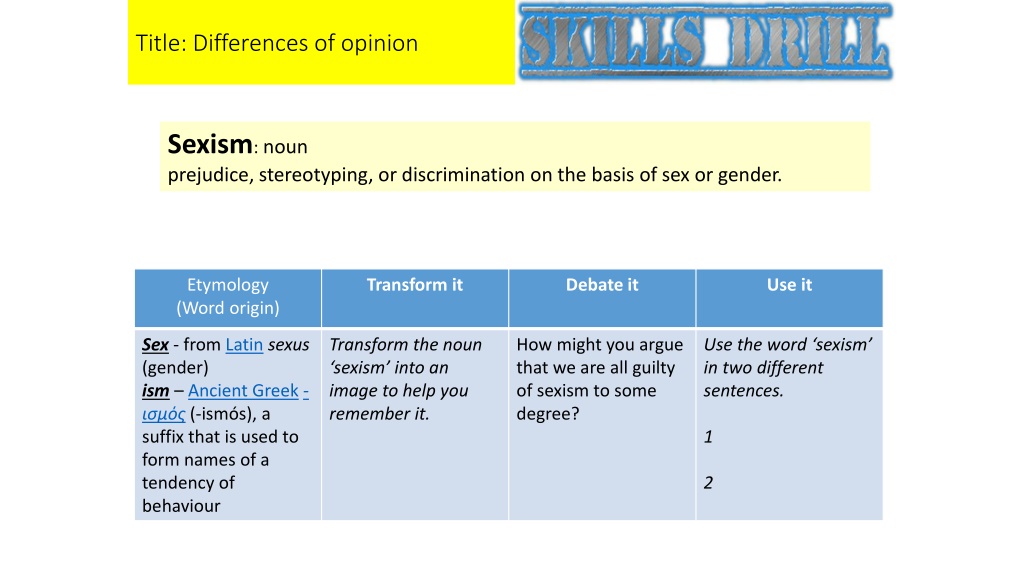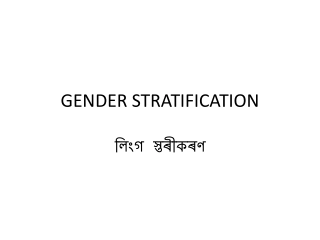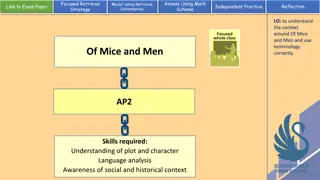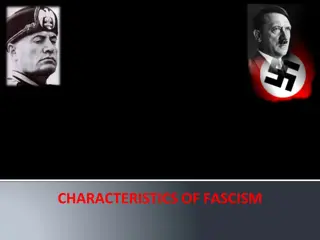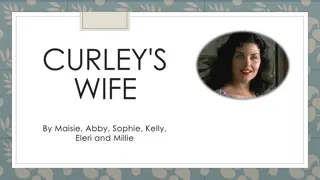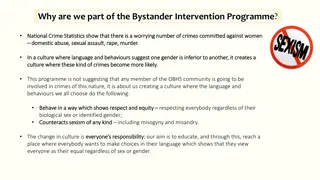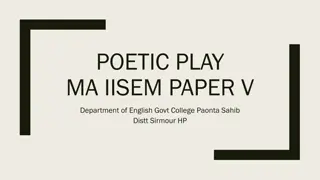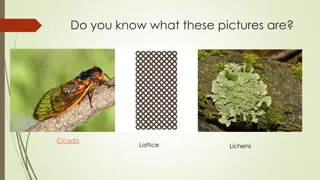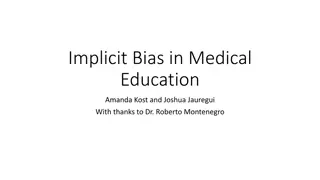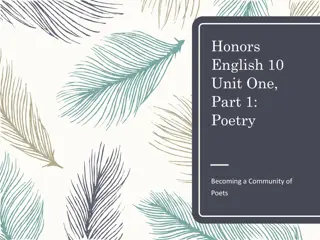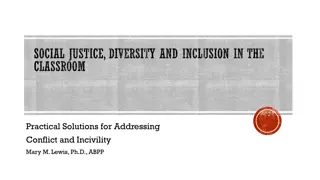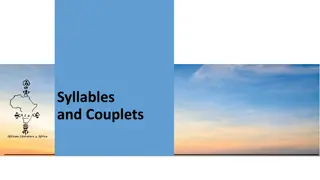Understanding Sexism and Mansplaining Through Poetic Perspectives
Explore the concept of sexism through etymology, debates, and practical examples like mansplaining. Analyze Wendy Cope's poem "Differences of Opinion" to uncover stereotypes and societal dynamics. Delve into the structure, themes, and language of the poem to understand the subtle nuances of gender biases.
Download Presentation

Please find below an Image/Link to download the presentation.
The content on the website is provided AS IS for your information and personal use only. It may not be sold, licensed, or shared on other websites without obtaining consent from the author. Download presentation by click this link. If you encounter any issues during the download, it is possible that the publisher has removed the file from their server.
E N D
Presentation Transcript
Title: Differences of opinion Sexism: noun prejudice, stereotyping, or discrimination on the basis of sex or gender. Etymology (Word origin) Transform it Debate it Use it Sex - from Latin sexus (gender) ism Ancient Greek - (-ism s), a suffix that is used to form names of a tendency of behaviour Transform the noun sexism into an image to help you remember it. How might you argue that we are all guilty of sexism to some degree? Use the word sexism in two different sentences. 1 2
What is mansplaining? Look at the chart below, what do you think it means? What do you understand by the term mansplaining ? Do you think mansplaining is a real issue and have you seen evidence of it yourself?
Kim Goodwin was asked to help some colleagues tell if they were being helpful or condescending. So she created a simple chart which went unexpectedly viral. Definition of the noun mansplaining - the explanation of something by a man, typically to a woman, in a manner regarded as condescending or patronizing.
Differences of opinion Wendy Cope Differences of opinion He tells her that the earth is flat -- He knows the facts, and that is that. In altercations fierce and long She tries her best to prove him wrong, But he has learned to argue well. He calls her arguments unsound And often asks her not to yell. She cannot win. He stands his ground. Read the poem. What do you notice? Make sure to: Write down three things you notice about the poem Use subject terminology The planet goes on being round. Stretch: What stereotypes is Cope drawing on in her poem? Wendy Cope
Structure How many stanzas? How does the mood or tone of each one differ from the last? Repetition? Rhythm or rhyme? Punctuation? Caesura? Enjambment? How are the first or last line significant? How to Analyse with SMILE Effect How does the reader feel towards the speaker, characters and overall about the themes highlighted? Structure This is where your personal reaction comes in! Meaning Imagery Language Language What associations do we make with the vocabulary? Can you link any words? Effect Meaning What does the poet want to highlight to us? How would you describe the speaker s tone? Is I , we or us used to involve the reader? Are they directly addressed using you ? Imagery
How are ideas about gender explored in the poem Differences of opinion by Wendy Cope?? Differences of opinion Cope makes use of[language feature] in order to show [quote] By using [word choice], the Cope implies Also, the use of [language feature] suggests He tells her that the earth is flat -- He knows the facts, and that is that. In altercations fierce and long She tries her best to prove him wrong, But he has learned to argue well. He calls her arguments unsound And often asks her not to yell. She cannot win. He stands his ground. The planet goes on being round. Discuss the use of structure in the poem and how it has been used for effect. Wendy Cope
Poetry glossary Add and define the terms we used today to our poetry glossaries in the back of our books.
